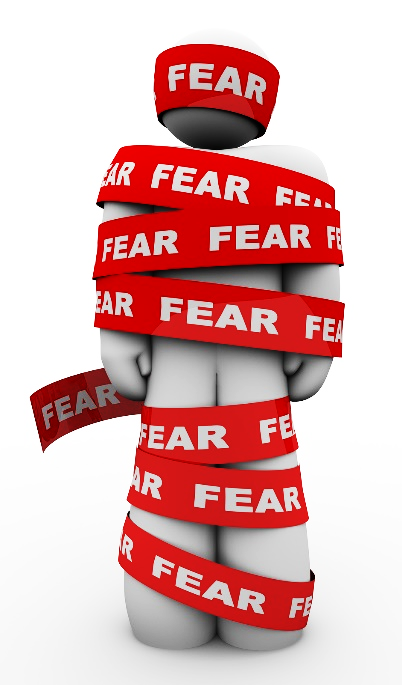Dare To Fail Part 1
Posted by: Ellie Gilbert | University of Denver Sports Psychology

As human beings, failure is a feeling that is universally detested and fiercely avoided. Nobody goes to bed dreaming of failure or wakes up in the morning proclaiming, “today is the day!” At the same time, the person who never allows failure to be an option is the person who will never succeed. If you have ever worked towards something or you simply live your life in a meaningful way, you have already, or will (I promise), fail. If you thought this post was going to teach you how to not fail, sorry to be the bad gal. I’m here to tell you, you will fail! And every time you do, you will either banish yourself to a cage of fear and distress, or you will give yourself the opportunity to learn, grow, and make yourself better. Just as I am certain that failure is inevitable, I am equally sure that how we look at failure and what we choose to do with it when it happens, defines who we are and the success we ultimately reach.
Being Vs. Doing
The sense of pressure and expectation that seems to arise so early for many young athletes often leads to a deeply rooted sense of athletic identity. When a person’s sense of who they are becomes wrapped up in the thing they do, it’s pretty easy to imagine failing at something translating into being a failure. It’s important to distinguish between feeling bad about our actions or our efforts, and feeling bad about who we are. Feelings of disappointment, anger, and frustration are all close friends of failure. Although not pleasant, these feelings have the potential to fuel our engines and be turned into productive behavior. Shame has also crept its way into that pool of emotions and effectively targets our self-esteem and feelings of worth. If you think back on the last time you failed at something, can you discern exactly what you were feeling? It is in our nature to quickly bury these feelings and move on. Taking a moment to figure out precisely how we feel after a given event and why can provide important insight into how we interpret failure, how we rebound from it, and even how we approach day to day activities, competition and sport in general.
Identifying Fear of Failure
If I asked how many of you are held back by a fear of failure, I would not expect to see many (hypothetical) hands shoot up. Even just a few months ago, I would have been sitting right alongside you, unaware that this was a problem for me. Fear of failure often operates on a subconscious level, hijacking our minds and influencing our actions without our knowledge. Even if you are aware on some level, it can be difficult to personally acknowledge, let alone admit to others. Admitting to fear of failure often feels like admitting weakness or exposing yourself as a vulnerable, fallible human (which we all are!). Without taking the time to explore our feelings surrounding failure, we allow ourselves to become victims of our circumstance, and we allow our failure to live on shrouded in all of its traditional negativity.
If you’re thinking you may struggle with fear of failure (in sport or in any other area of life), the first step is clearly identifying your feelings and the protective behaviors you exhibit to avoid the chance of failing. When you find yourself overly stressed or unsure about an upcoming competition or event, ask yourself a few questions to expose your inner dialogue and give yourself a chance to effectively deal with your emotions.
- Are you worried about disappointing people? Do you worry they’ll think differently of you if you do well or if you don’t?
- Do you worry that not doing well will dramatically alter the path of your life or affect your future plans?
- Do you find yourself making excuses before the event or explaining reasons for your imminent failure to your parents or friends?
- Do you avoid attending events where you think there’s a limited chance of success?
If you can relate to any of these questions, it might be time for you to take a closer look at how failure (and success!) operate within your life.
Fear and Physiology
Whether we knowingly fear failure or not, we are all familiar with the experience of “butterflies” before a competition. Experiencing nerves and stress are normal and even beneficial to your performance as long as they are within your zone of optimal functioning (the state of activation at which your body is primed to perform at its best). When the butterflies start flapping out of control, those nerves turn into anxiety, forcing your body into a state that is over-activated and not conducive to optimal performance. That anxiety you experience can often be indicative of some sort of fear – fear that things will not go the way you want them to go in this important moment.
Without delving too deeply into the inner workings of the human body, it’s important to recognize that fear triggers a stress response, forcing the body into protection mode. The stress response in the body activates a sequence of events that is meant to give the person the best chance of survival when faced with danger. An anxious or fearful athlete is essentially forcing their body into fight-or-flight mode, causing it to react to psychological threats to self-image and ego the same way it would react to a threat to life or limb. The physical sensation is one of tightening and constriction, thinking becomes cloudy and we lose control of our attention. The body may enter this state the day of the competition, the week before, or even reside there chronically. The stress response is an incredibly effective and efficient system of survival, but it’s not meant to be engaged for extended periods of time. When the “All clear!” bell never sounds, the stress response never disengages. Trapping ourselves in protection mode both wastes huge amounts of energy and inhibits biological processes of growth and development. Not only does this clearly put competitive athletes at a physical disadvantage, it can also result in long-term health consequences. All of this goes to show that there is virtually nothing that will more surely result in failure than an athlete’s fear of failure itself.
Learning Fear
Now that we’ve recognized failure as an inevitable part of the human experience, it’s time to start discussing how to re-frame its role in our sport-fueled society. For the coaches and parents reading this: you are a crucial part of the equation. You are the primary influencers in your children’s lives and athletic careers, and what you do and say makes a huge difference. As humans, we are programmed with certain survival instincts, but as babies and young children, we acquire the majority of our learned behaviors and beliefs from the prominent people in our lives. These often self-limiting thought-patterns are absorbed into our subconscious and quietly govern the course of our lives until we consciously engage in an effort to change them. It’s extremely common that at a young age, children are taught that making mistakes is a bad thing. They’re taught that if they fail, they’ll be punished or rejected. They’re taught that what other people think of them matters, and that having people think highly of them is indicative of success. These messages are fed to our youth both explicitly and subliminally, at times on purpose, and at times unintentionally. Within a child’s spongy brain, these messages culminate in failure being linked to fear. We are conditioned to produce an automatic fear response when experiencing failure or even thinking about failing.
So – parents, coaches, directors, teachers, mentors…you matter! Like it or not, the impact you have on the children in your life is tremendous. You can make the effort to combat the fear inducing messages our kids are receiving from the environment by being conscious of the messages you are sending. Normalize failure; support your kids when they make mistakes; applaud the things they do well even when they fail; direct attention away from others subjective evaluations of them; etc. You get the point. There are countless things we can do as role models to help kids rethink failure. Better yet, let’s strive to provide unconditional support and arm them with the self-assurance that will help prevent failure from becoming something to fear at all.
Redefining Failure
Now that we’re talking about it, let’s make it our mission to re-frame failure for our athletes, for ourselves, and for those we love. No one likes failing, but no one is immune to it. If we can come to terms with its inevitability, we can overcome our fear of it. If we can separate our failure from our personhood, we will never give it the power to tear us down. If we can look at our own failures as landmarks on our path to success rather than roadblocks to it, we will never truly fail. If we can alter the way we respond to the failures of those around us, we can perpetuate a world that inspires courage and innovation.
Failure only exists in avoiding failure. Let’s boldly dare to fail.
We hope you’ve enjoyed reading this post, and that it inspires you to reflect on how you approach and handle life’s challenges. Now that you have lots to chew on, stay tuned for next month’s blog where we will explore tools and strategies to help you develop a healthy relationship with failure (and success!)! Thanks for reading!









